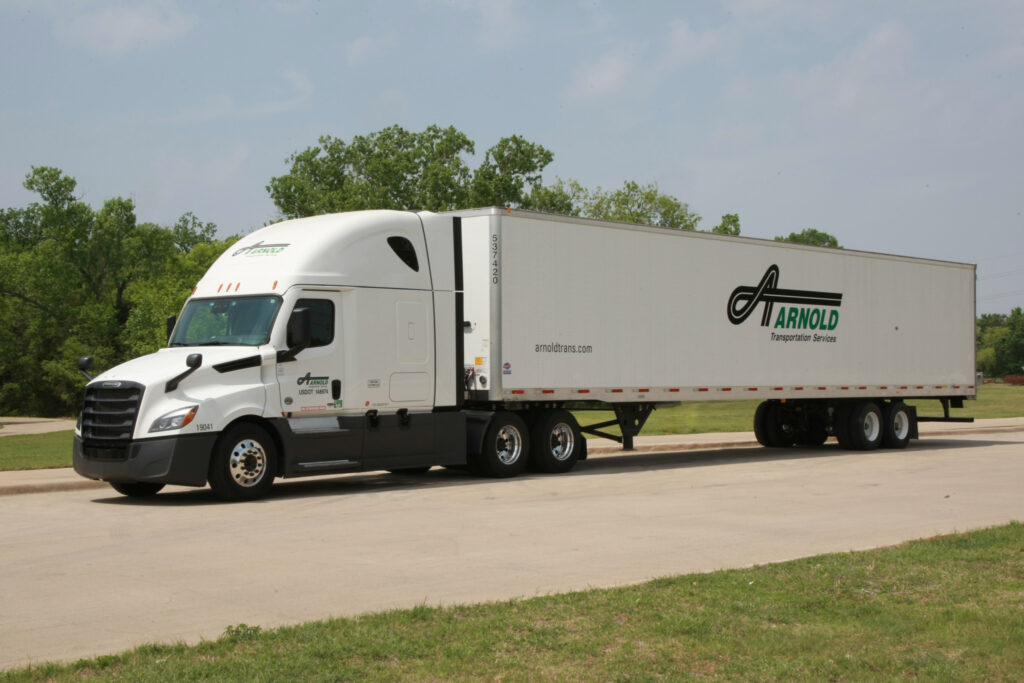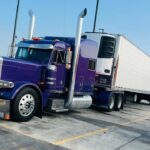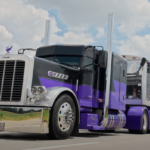A long-standing trucking firm, Arnold Transportation Services based in Grand Prairie, Texas, recently halted its operations and initiated Chapter 7 bankruptcy proceedings. Alongside it, three associated companies—Parker Global Enterprises, Parker Transport Co., and DVP Holding Corp.—also filed for Chapter 7 liquidation in the U.S. Bankruptcy Court for the District of Delaware.
Back in February 2022, Arnold Transportation was acquired by Pride Group Logistics, a subsidiary of Pride Group Holdings located in Mississauga, Ontario, one of Canada’s major trucking and leasing entities. However, facing challenges, Pride Group and its affiliated companies, including the aforementioned four, sought creditor protection in Canada on March 28. They cited oversupply in the market and reduced rates as reasons for their financial woes.
According to court documents, Arnold Transportation had been relying on funding from Pride Logistics as it struggled with profitability. Some of Arnold’s dispatchers were being paid through Pride Logistics’ payroll system.
At the time of its closure, Arnold Transportation employed 341 truck drivers and operated 402 power units, as indicated by the Federal Motor Carrier Safety Administration’s SAFER website.
Reports from FreightWaves in April revealed that Pride Group was indebted to creditors to the tune of over $637 million. President and CEO Sulakhan “Sam” Johal, who founded the company in 2010 with his brother Jasvir Johal, attributed the bankruptcy to market challenges exacerbated by the pandemic. According to Sam Johal, the company had been profitable until the onset of the pandemic, but the subsequent industry downturn left the family-run business unable to meet its financial obligations.
WITHOUT PRIOR NOTICE OR FOREWARNING
Former drivers of Arnold Transportation reported abrupt layoffs on April 25, expressing shock as their medical benefits were simultaneously terminated. In the bankruptcy petition filed in Delaware, the company listed its assets as potentially reaching $10 million, with liabilities ranging between $10 million and $50 million. The petition noted up to 199 creditors, with plans for funds to be distributed to unsecured creditors, although none were specified in Arnold Transportation’s filing.
Navraj Johal, identified as the sole director of the now-defunct trucking firm, oversaw operations that had provided regional, dedicated, and expedited services since 1932, according to the company’s website. However, Navraj Johal’s relation to the Johal brothers, founders of Pride Group, remains unclear.
Despite the company’s sudden closure, Arnold Transportation Services submitted a Worker Adjustment and Retraining Notification (WARN) Act notice, citing the layoff of 157 workers, nearly a week after its shutdown. This action contrasts with the requirement for companies with over 100 employees to provide a 60-day notice before a planned closure.
Arnold Transportation’s operations, monitored by the Federal Motor Carrier Safety Administration (FMCSA), had a mixed safety record. While the company’s trucks experienced a slightly lower out-of-service rate than the industry average, its drivers’ out-of-service rate was notably lower. However, over the past two years, Arnold Transportation trucks were involved in several fatal and injury crashes.
Court documents suggest that the decision to file for Chapter 7 bankruptcy was made in consultation with legal and financial advisors. The petitions state Navraj Johal’s intention to dismiss or withdraw the Chapter 15 cases of the respective companies, aiming to protect the interests of creditors, employees, stakeholders, and other involved parties.
Despite these developments, Penelope Jensen, a bankruptcy attorney for Pride Group, had not responded to requests for comment at the time of publication.
Meanwhile, Pride Group faced its own financial challenges in Canada, securing creditor protection under the Companies’ Creditors Arrangement Act (CCAA) after lawsuits from Mitsubishi HC Capital alleging default on payments personally guaranteed by Pride Group’s leadership. Mitsubishi HC Capital sought damages totaling $100 million in these lawsuits.





